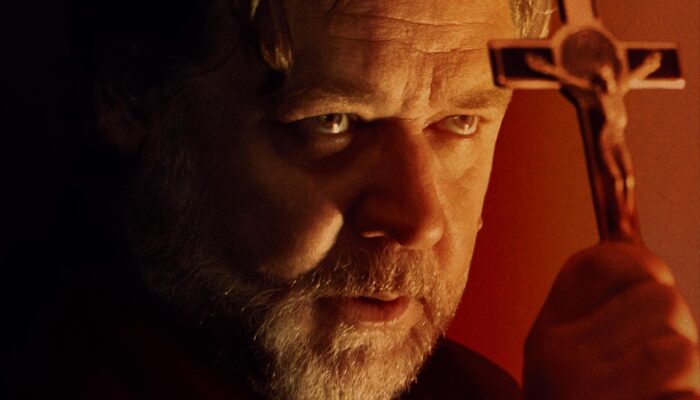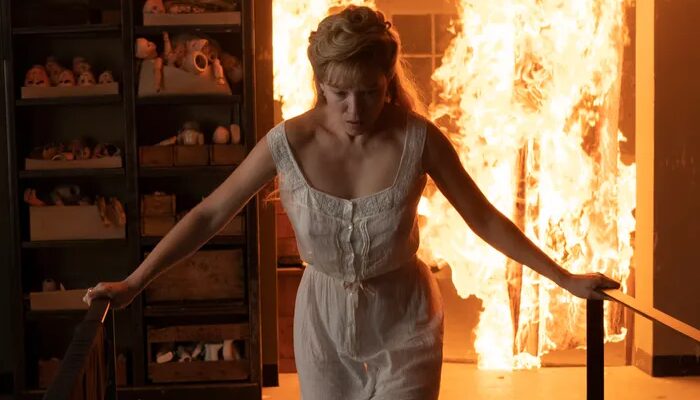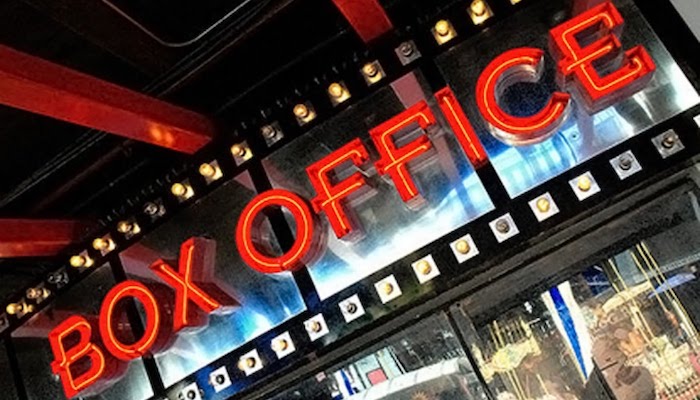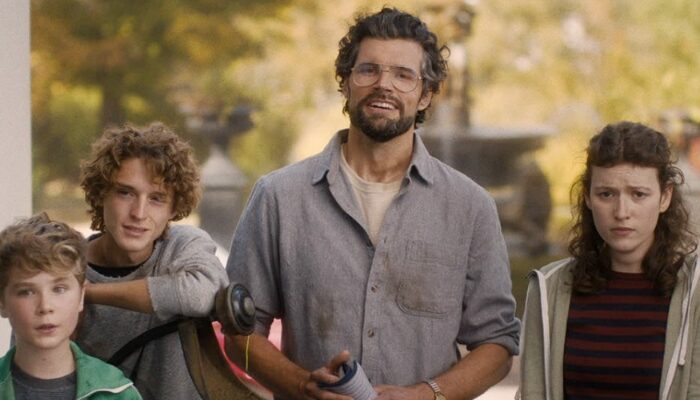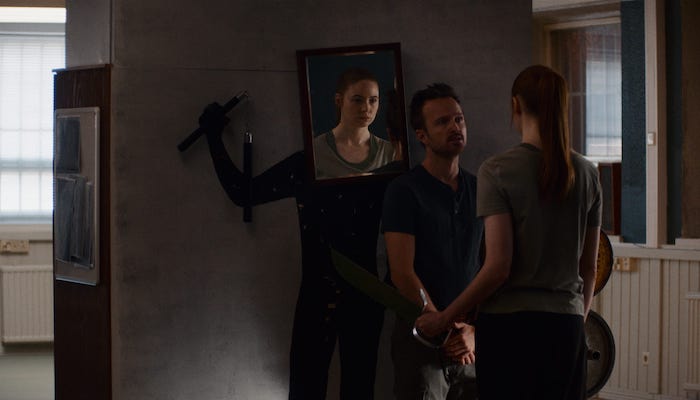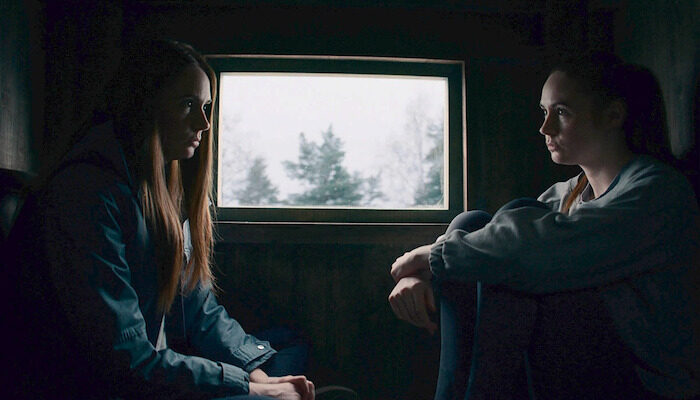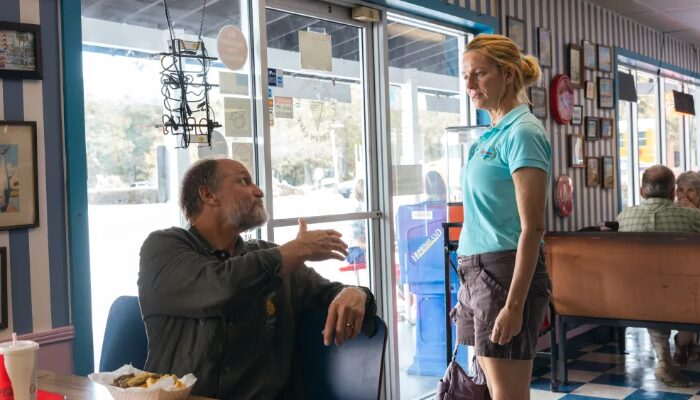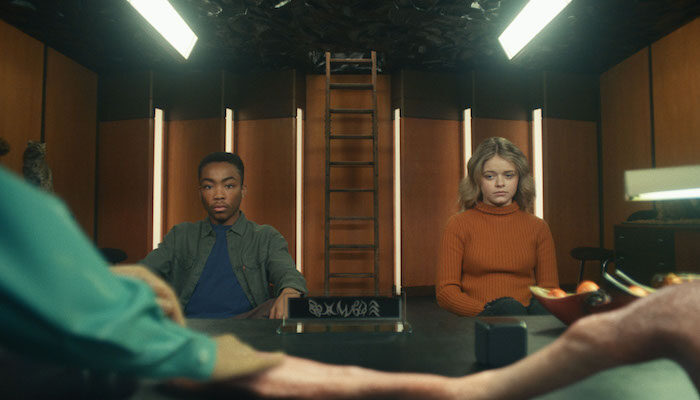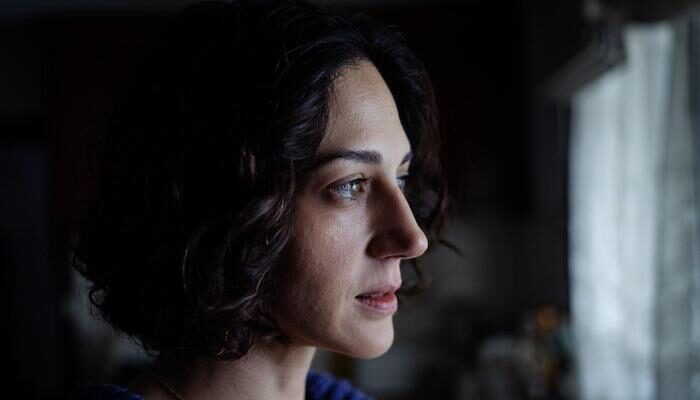Film Review: DUAL: A Detached & Deadpan Sci-Fi Comedy Undermined By Its Own Vapid Vagueness [Sundance 2022]
Dual Review
Dual (2022) Film Review from the 45th Annual Sundance Film Festival, a movie written and directed by Riley Stearns, starring Karen Gillan, Aaron Paul, Beulah Koale, Maija Paunio, Andrei Alén, and Kristofer Gummerus.
High concept precludes high risk, which can really give such a film a sink-or-swim chance at success. But what happens if it does neither of those things? What if it just merely … floats down the middle?
Cue Riley Stearns’ new film Dual: a strange sci-fi dark comedy that’s not particularly funny or clever, but is unabashedly dedicated to its whole steez.
After being diagnosed with an allegedly incurable digestive tract illness, apathetic alcoholic thirtysomething Sarah (Karen Gillan) wonders how to mend her disintegrating relationships with her boyfriend Peter (Beulah Koale) and her mom (Maija Paunio) before she eventually kicks the bucket. Ultimately, she decides to leave them with a fresh start – literally, in that she decides to clone herself and leave them a healthy version of her to live on for many more years (sans her stomach illness, apparently, and her brown eyes as a glitch in the process turned them blue). Sarah’s clone is friendly enough and starts prepping to usurp her original’s life, but when the real Sarah’s illness miraculously goes into remission her clone is not willing to give up “her” life so easily.
The law states that no person can simultaneously exist in the world with their clone, so Sarah and her clone are reluctantly mandated to partake in a dual to the death to claim the official title of … “Sarah”. Through a strange set of coincidences the real Sarah is then kicked out of her abode, with very few resources and no emotional support – with the exception of Trent (Aaron Paul), a man who specializes in training prospective duellists in clone fights. His odd routines prove strikingly effective, as Sarah gets in shape to take on and fatally defeat … well, herself.
It’s easy to draw stylistic comparisons – if not straight-up through lines – from Stearns to Yorgos Lanthimos, arguably our generation’s premier deadpan dealer (though Stearns’ predilections are certainly more nebbish). However, Lanthimos employs monotony as a numbing device: a means of easing us into his treatises on modern society, and the existential horror of how inexplicable and deep his/our worlds ultimately go. Stearns nails that same sense of vagueness, but there’s no depth to it. Sure, we’re eventually given answers to moments that initially appear like glaring plot holes, but they end up being less revelatory about the oddities of social contracts and exist simply as narrative spackling over shoddy tedium.
The emotionlessness of the performances, though a true committal to Stearns’ apparent bit, renders their actions – much less their characters – rather pointless. Why would Sarah or anyone else want to clone themselves for the ease of their loved ones after they suffer an untimely death, if said loved ones are just as emotionally stunted and numb to all of existence? How can someone as self-aware and introspective and misanthropic as Sarah end up being that vulnerable, in every respect? Not that every body nor every thing must Make Sense or exist for an explicit purpose, but Stearns’ clone-filled dystopian world leaves us with nary a need to ponder. It just seems dull and stupid for dull and stupid’s sake, which is perfectly fine, but then I choose to willingly tune out such emptily cynical drivel.
In essence, Stearns is unironically embodying Trent’s advice to Sarah as his own cinematic calling card: “If it’s the difference between life and death, it’s okay to be boring.”
But despite my misgivings, there are a few moments – a few brief, detached moments – where Stearns’ deadpan approach – a brief, detached approach – is actually pretty funny. One of those is where Sarah and Trent are doing a slow-motion walkthrough of a potential dual, complete with self-made sound effects, laceration narration, and exaggerated actings-out of dismemberment. Neither Gillan nor Paul are given the space they really need to shine, but moments like this are evident that they’re giving it the best they got.
There’s also an evident dedication to the peculiar that you can’t fault Stearns for maintaining. The blandness of the characters is echoed by a blandness of the world – not necessarily a minimalist nor monochromatic world that Sarah’s late-night movie binge of Beyond the Black Rainbow might suggest, but rather one of no corporate texture, cultural touchstones, nor even time and place. Even Sarah’s initial diagnosis is never really clarified, it’s just something that’s allegedly fatal. The real world doesn’t exist in a vacuum but apparently the world of Dual does.
Stearns’ film is steadfastly stoic in an admirable sort of way, but only his die-hard fans will be able to appreciate (much less tolerate) it beyond its surface-level strangeness. For everyone else, just venture to the Alps instead.
Rating: 5/10
Leave your thoughts on this Dual review and the film below in the comments section. Readers seeking to support this type of content can visit our Patreon Page and become one of FilmBook’s patrons. Readers seeking more Sundance Film Festival news can visit our Sundance Film Festival Page, our Film Festival Page, and our Film Festival Facebook Page. Readers seeking more film reviews can visit our Movie Review Page, our Movie Review Twitter Page, and our Movie Review Facebook Page. Want up-to-the-minute notifications? FilmBook staff members publish articles by Email, Twitter, Facebook, Instagram, Tumblr, Pinterest, Reddit, and Flipboard.
Related Articles
FilmBook's Newsletter
Subscribe to FilmBook’s Daily Newsletter for the latest news!

